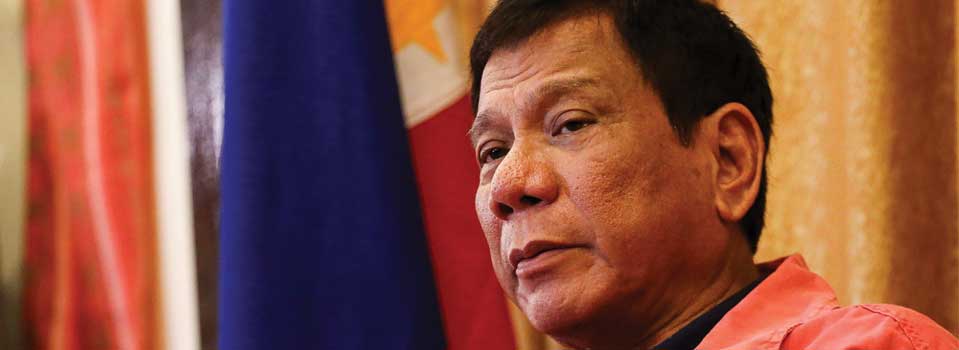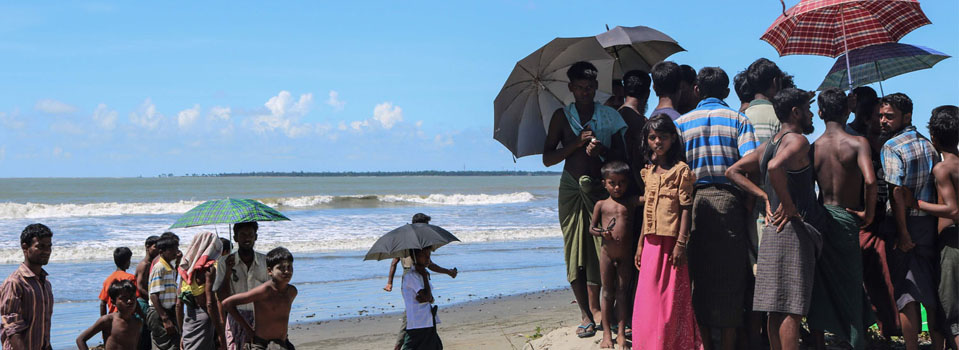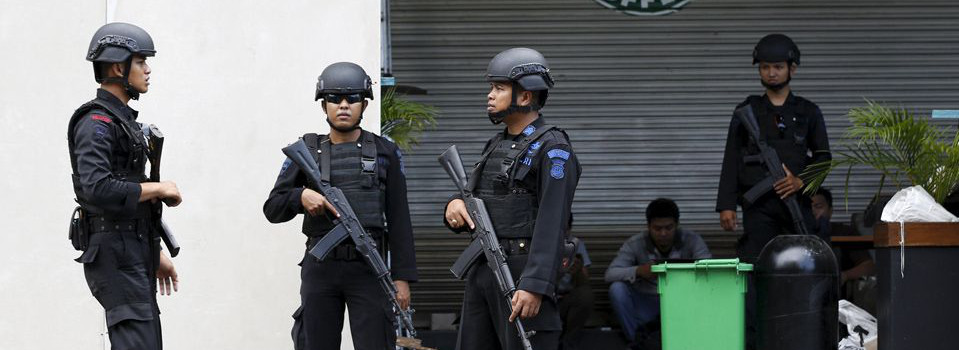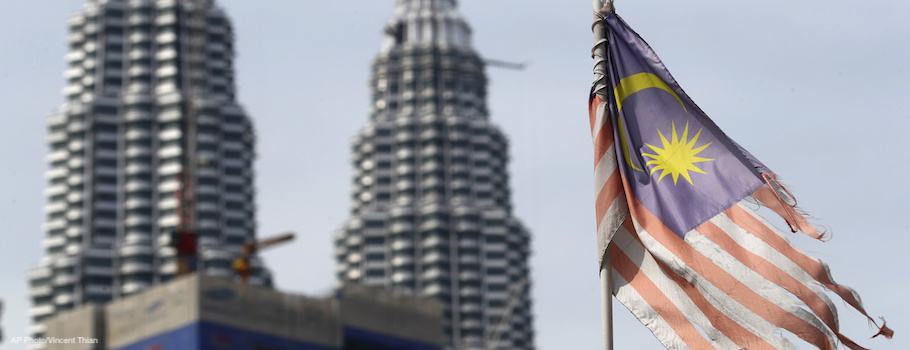An existential challenge facing the incoming Rodrigo Duterte Administration is to conclude peace talks with National Democratic Front (NDF) communists and Moro Islamic Liberation Front (MILF) separatists.
If he succeeds, he would move closer to achieving his goal of a new Philippines in which the Malacanang presidential place symbolises an inclusive and healing institution free of the suffocating grip of elite politics that represents the narrow economic interests of an entrenched oligarchy.
The two insurgencies are viscerally important because they have impeded the achievement of extensive stability in the Philippines. They have eluded past administrations since the overthrow of the dictator Ferdinand Marcos in the People Power revolution of 1986. Even today, the rebellions detract seriously from the political and social gains of democratisation inaugurated by a revolution which remade the Philippines. The centrifugal forces of communist and separatist activism must now be brought within the generous ambit of national reconciliation.
COUP FOR PEACE
Hopes rest on the new leader, a man closely in touch with popular sentiments but at the same time tough-talking and decisive. Surrounded by advisers who bring both expertise and experience to the table, Mr Duterte should be able to combine the political goodwill witnessed in his landslide victory with the credibility that he possesses among the armed forces, the police and the bureaucracy.
It is this combination that could allow him to overcome strong anti-communist and anti-separatist sentiments that naturally are prevalent in the military establishment. If this outcome occurs, he would pull off a coup for peace in a country weary of failed attempts to bring the NDF and the MILF within the nation’s democratic fold.
The first test in the dual peace process will come in Oslo next month, just weeks after Mr Duterte assumes office, when the government holds formal talks with the NDF.
At a preliminary parley in the Norwegian capital recently, the Philippine delegation boasted incoming Presidential Peace Adviser Jesus Dureza, while the other side included Communist Party of the Philippines (CPP) founder Jose Maria Sison. The NDF represents the CPP and its armed wing, the New People’s Army (NPA), in peace negotiations with Manila.
At stake is the future of Asia’s longest-running communist insurgency. In a sobering reminder of the difficulties ahead, the Duterte Administration will be the sixth to talk to the NDF in a bid to encourage it to end the armed struggle.
However, the comprehensive agenda for the Oslo talks next month touches on key sticking points that have held up or interrupted the peace process till now. The five-point agenda mentions the affirmation of agreements signed already; an accelerated negotiation process; the reconstitution of a previous agreement on immunity guarantees; the proclamation of an amnesty for political prisoners with the concurrence of Congress; and the possibility of an interim cease-fire.
The substantive nature of these issues reveals the seriousness with which both sides are approaching the discussions. The mood is upbeat, with Mr Sison remarking that he was elated at the prospects of the talks. Mr Dureza spoke of “shared optimism on both sides”.
Mr Dureza himself is one reason for the optimism. A distinguished lawyer, law professor and former spokesman of the House of Representatives, the seasoned politician understands both the Byzantine workings of the Malacanang political bureaucracy and the dynamism of local politics outside Manila. His personal friendship with Mr Duterte will give him access to the new leader in a way that could influence outcomes in discussions with the communists and Muslims in Mindanao.
In fact, veteran Moro leader Nur Misuari is reported to have said before the presidential election: “I want Duterte. If you don’t like Duterte put [in] Dureza,”
The mood is similarly propitious in talks with the MILF, the biggest Muslim rebel group in the Philippines. The prize is an end to a battle for self-determination that has killed more than 120,000 people and displaced millions over the past four decades.
MANY FALSE STARTS
After many false starts, an historic accord was signed in 2014 under which an autonomous region named Bangsamoro would be formed on part of Mindanao Island, in the Philippines’ Muslim-majority south.
The road map for peace centres on the Bangsamoro Basic Law (BBL). By creating a Bangsamoro ministerial government, it would introduce a substantial degree of self-governance, devolve economic and political power to the region, and tackle both poverty and secession. Under the law, which received presidential endorsement in 2014, the local government would be able to levy taxes, lay down business regulations, build infrastructure, and set up courts – measures indicating a genuine degree of autonomy.
However, an anti-terrorist military operation last year resulted in the deaths of 44 elite police, 17 MILF members, and five civilians. National outrage over the police deaths set back the passage of the BBL in Congress.
Change is in the air, though. A meeting between government negotiators and MILF representatives in Kuala Lumpur last month ended with renewed expectations that the peace process would move ahead under a new Administration.
The issue has been complicated somewhat by Mr Duterte’s desire to change the country’s unitary form of government to a federal one. Devolution and decentralisation would help to rectify the economics and politics of uneven development that bedevil the Philippines. They would benefit Moros as well.
However, the MILF does not want the BBL, an existing template for Moro autonomy that can be implemented on its own, to be subsumed by the long-drawn debate that is expected to take place on federalism for the entire country.
The grouping is looking to Mr Duterte, whose empathy with legitimate Muslim grievances is well-known, to break the impasse.
At this critical juncture, Mr Dureza has called for wide-ranging consultations involving all stakeholders to determine how Manila should move ahead. His respect for the consultative nature of democracy could help to create the basis of a national consensus on the Moro issue.
If that consensus endures, the Philippines would benefit from politics as the timeless art of the possible. The Moro insurgency could go the way of the one in Aceh, which stopped once Indonesia adopted an essentially “one-country-two-systems” approach to the province. Jakarta’s concessions gave Aceh sufficient autonomy to undercut the demand for secession.
The communist insurgency might be more difficult to tackle, but even there, Mr Sison and his comrades know that time is not on their side. The communist utopia having gone forever, they may settle for reality.
It is up to the new Philippines government to make the most of that reality.




